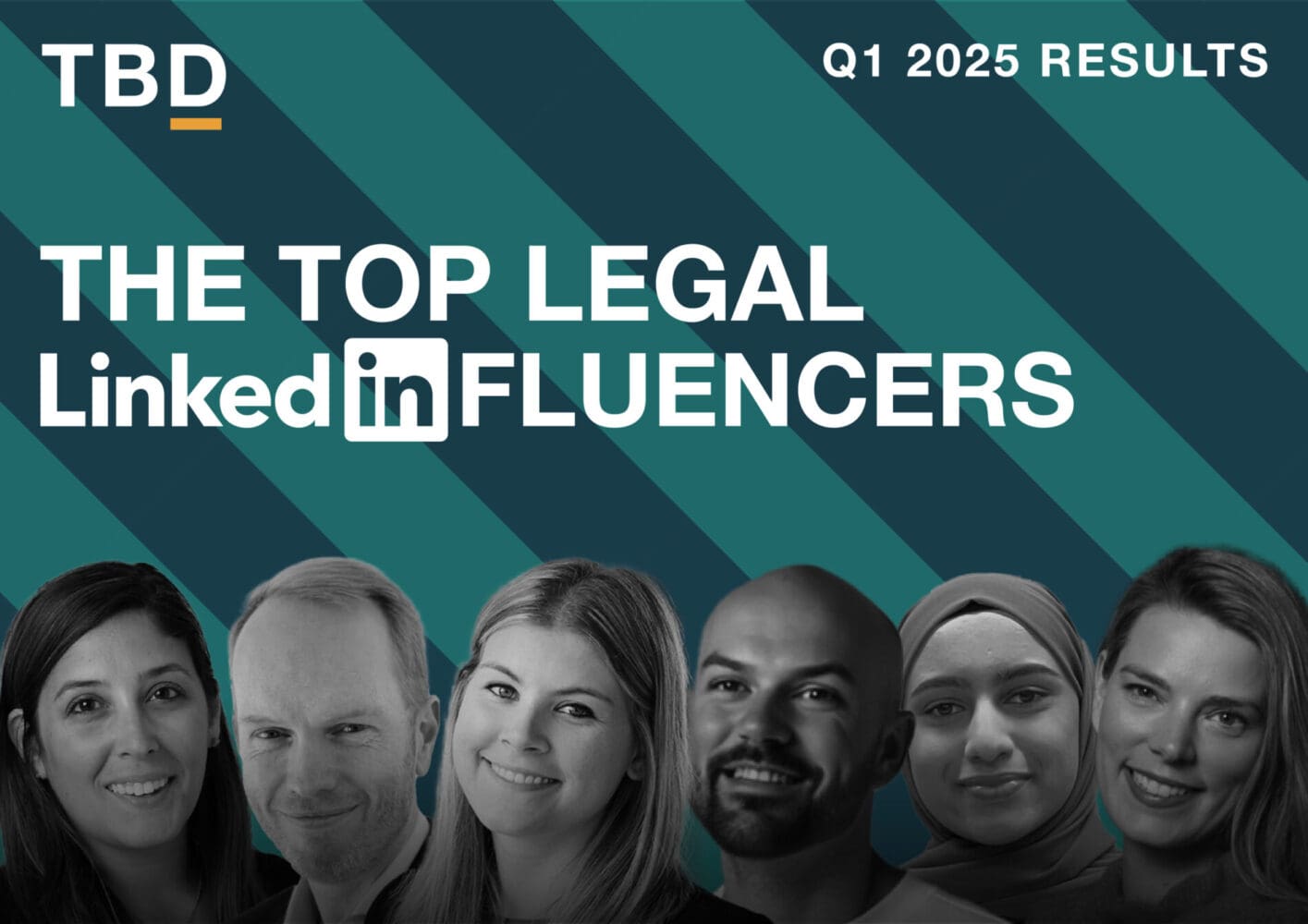How do I build a new law firm website?
Here are ten important questions to ask if you’re looking to build a new law firm website. This article also covers what you need to know to get your website to perform better. It doesn’t matter if you’re a small law firm or a mid-sized or large law firm, they’re pretty important questions for any size of web build. It’ll take around nine to ten minutes to read (we checked) but it will save you thousands and potentially tens of thousands of pounds.
Websites for law firms – the basis for law firm marketing
You have to have a website – it’s the only part of your business that is open 24 hours a day.
Your website should be visually appealing. Your website should showcase your expertise, and your website should present contact details for the fee earners (or you if you’re a sole practitioner).
So far, so good.
A lot of law firms stop there. That is essentially a brochure as a website and it serves a perfectly good purpose: to verify that you are who you say you are to people who hear of you word of mouth. Almost no-one will instruct you purely off the back of reading this kind of website, but it will be useful for verifying that you are a law firm.
So, what else could I do as a law firm with my website?
You should use your website as part of running your integrated marketing campaigns to attract new audiences. You should also use your website to form the basis of your communications plan if you’re facing some challenges.
Google”owns” the audience that you don’t know. For more on that topic, and so that we can justify that outrageous statement, read this related post on why you need to love Google and why Google needs to love your website”.
Now, the good news is that the size of your law firm is pretty irrelevant to Google. Google does not rank your search results based on the number of fee-earners you have.
Some things that Google does care about are:
How closely aligned your web page or blog post or legal update is to the search that the Google visitor put in in the first place;
How many people read your article/pages on your website;
How long they stay on your site;
How often they share your web pages with others; and
How many links to your page/article exist on other people’s websites.
These are all things that we can do something about if we choose the right web agency to build our website and if we have the right content strategy in place when it is launched.
Agencies who build websites for law firms
The website you’re reading this on was built in two days on an existing template. That timeframe includes integrating all the analytics and thinking about how to have it rank on Google. It was done for around £300 as of end January 2018. Like any website, it remains a work in progress but it has had more traffic in its first week of existence than many firms get in the first few months of theirs.
We mention that because it’s easy to get drawn into website design by designers who want to build you a beautiful website, but who are not focused on producing the kind of website that will help your law firm win new business. Here at TBD, we want you to grow your business and/or make it more profitable, so our approach to web design is based on hitting that objective.
At TBD – a legal marketing agency – we have a track record in doing just that: bringing new audiences in and converting them into actual new business.
So what questions should you ask your web agency to know if they are building or running the site you need?
Question 1: How will this website help me achieve my business objectives?
More importantly, if your agency doesn’t ask you this question, you should be very wary. Every website build now, no matter the size of law firm that you run or work at, should underpin your objectives. If your web agency isn’t talking to you about calls to action (CTAs), analytics or website goals, they’re leading you in the wrong direction. TBD can help you generate those firmwide objectives and the related website ones if you’ve yet to write them.
Question 2: How are we going to tackle user stories?
First, if they don’t start by asking you about your users (website visitors) then that’s often a bad sign. Major websites – for any type of organisation – will focus on the needs of the users and website visitors.
So the first question to ask a web developer (if they don’t mention them) is ‘How will you build user stories into the design of the site?’
User stories are functions that different groups of users want to do when they’re on your site. Examples of user stories include:
‘How do I find a particular lawyer on your website?’; or
‘How do I find my way to your office?’
User stories should inform the build of your website.
If you have a lower budget, you’ll develop these user stories based on what you know about your target audience(s).
If you have a larger budget, you can use UX (user experience) testing to actually bring in clients, targets, recruiters or other stakeholders and ask them the answers to certain questions to help design the site based on their needs. One advantage of this is that you’re building the site for real people, not a past-based, internal perception of what your website visitors might want.
Question 3: What is your content strategy? What content do you need on your website? What weight goes to a blog versus the brochureware? How are you going to map the content from our old site to our new site?
Lots of goodwill exists in your current website. Well, hopefully, anyway. So if your agency doesn’t have a plan to get people from the old website page addresses to the right pages on your proposed new site, then you’re throwing away that goodwill. It’s another sign that they have a build-led mentality as opposed to a content-led strategy.
Have you ever experienced a 404 error – page not found? Of course you have. Frustrating, isn’t it? That is a sign that someone has forgotten to design the site to have you find content. Google hates 404 errors and punishes your rankings for all your pages if you have these dead links.
If your agency isn’t able to answer how it’ll map these pages over, you are literally throwing away traffic. And traffic means new business leads.
It’s like starting from scratch on a draft chapter of a book because you made a few spelling mistake in the prior draft. Please don’t let your agency do this no matter how much you don’t like your existing site.
Question 4: What CMS (Content Management System) are you going to use to build the site?
There are lots of choices here as to which system you could use.
Larger law firms use more sophisticated CMS systems because they have more tools baked into them. As a result, they perform all the tasks a larger firm needs seamlessly from day one. Larger CMS packages like Sitecore and Episerver have annual licences which can cost thousands a year to use. For smaller firms, these can prove prohibitively high for the benefit that you derive from them. They are also over-engineered for your purposes. A simple, user-friendly CMS will save you a lot of time and frustration.
At TBD, we have built sites for law firms based on lots of different packages. Our site is built on WordPress (which powers 29% of all the world’s websites) because it’s very low cost, it’s very easy to grant content access to authors of legal updates or blogs (I’m typing this on my mobile as I go) and it has hundreds of plugins available to make your site work harder. For plugins, think apps but for websites. You can plug in events management, email marketing, CRM systems, traffic analysis and so many effects that it’s impossible to list them all here. We’ll deal with systems integration at length in another post on another date.
Finally, because WordPress is so widely used, the volume of web developers who build it in is huge too. That means that development costs are lower than many other platforms and that one developer can pick up from another. We know some great WordPress developers to develop with, so let us know if you’d like us to help you build your new site.
Question 5: What SEO tools are you using to analyse the site after go live?
At TBD, we’re not tied to any particular SEO tool. Our site has some WordPress plugins enabled (free ones, we might add) which allow you to:
- See how many people came to your site today, yesterday, this week, this month;
- How many pages they read;
- How long they stayed on your site; and
- Whether or not they downloaded anything or called or emailed you as a result.
So, if your agency doesn’t have this in mind, this should serve as a warning light to you.
There’s a lot more to cover here, and we’ll do that in a dedicated SEO post on another day.
Question 6: What social sharing and email marketing functions are you going to build into the site?
Google uses social as a signal in ranking your page. An equally good web page written by you and your direct competitor will rank differently on Google purely because of how much your readers share it. If your web agency doesn’t talk about social as part of your web build, then a warning light should come on for you.
Equally, if your web agency doesn’t talk about integrating your email marketing system into the web build (or using the CMS to do this), then another warning light should go off.
Question 7: What’s the budget for this new law firm website?
Look, this is quite possibly going to make us unpopular. But here goes.
For a brand new start up, you should be paying between £2,000 for a templated WordPress site up to about £10,000 for a fully functional WordPress site built from the bottom up. The templates are free or low cost on WordPress, the more expensive bottom-up approach means that the site will grow with you as your business grows and is a fully integrated site built just for you.
For more established firms, a bespoke CMS build (like the ones mentioned above) might be more appropriate. We’d suggest that you don’t immediately discount the bespoke WordPress route as there’s so much value for money in that option and it will leave you with a lot of budget for content creation or promotion. Equally, if you want a bespoke site built on a major CMS like Sitecore, there are some major advantages as the system is built to perform like a well-tuned engine. Analytics and those tools that would be plugins in WordPress often come straight out of the box on these larger builds.
Question 8: How are you going to handle maintenance and support for our website?
We’ll deal with this at length in another post, but it’s a good question to ask them before they build the site to know:
- That they don’t see it as a site build and then they disappear; and
- That they aren’t going to run a mile when you suggest that they need to do some snagging on your website after go live.
Question 9: Does their development methodology fit your firm’s culture?
If you have a flexible culture, with not too many decision-makers in the process, you should use the agile methodology for the best results.
If you have a lot of decision makers and decision-making is slower in your organisation, you should use the waterfall methodology to flush out the options internally before you are on agency time and the clock is running.
Picking the right methodology can save you a lot of scope creep, money and heartache.
Question 10: Now, here’s a question for you: How much should you spend on your new website?
We asked some other friends at law firms what they thought of our idea of dividing web traffic by total spent on the web build to give a rough cost estimate. They ummed and they ahhed. This is where we got to:
Up to 100,000 hits per year – stick with WordPress. Rebuild it on there if you have to, but focus on your content strategy once the site looks and feels good enough. Build cost – £2k to £10k, excluding fancy functionality or additional development work.
Around 500,000 hits per year – this is a hard one. You’re stuck between two horses. On average, I would postpone the web build for another year and focus on your content strategy. If your site is not mobile friendly, then update it now before it becomes irrelevant. Build costs – same as above or below depending on the option you choose.
Around 1,000,000 hits per year – For older sites, it’s time to make the big call: do you need a bespoke CMS system? Given that the traffic boost that a new site and proper content marketing can produce (we’d expect you to double your web traffic within a year of the rebuild), it’s probably time to invest. Build costs – from £100k to £200k
Around 2,000,000 hits per year and more, you should build (or have built) a site on a bespoke CMS with all the integrated functionality. And if you’re this size, then you should definitely be focusing on optimising your content strategy. That’s something that TBD can help you with. Build costs, normally in excess of £150k.
As you can see, an average page view costs around 10p in development fees. But there’s nuance in the build prices based on how the site functions, how many languages it has etc. Equally, 10p per web hit is a great yardstick for agency price comparisons.
What’s should I do next to build my law firm’s website?
If you liked this article or used it in discussions with your web agency, please could you let us know and let your networks know by sharing it with them using the buttons below?
If you think we can help you with your web build (we can!) then get in touch with us at TheTeam@2BD.ME or on 0117 2872099.






